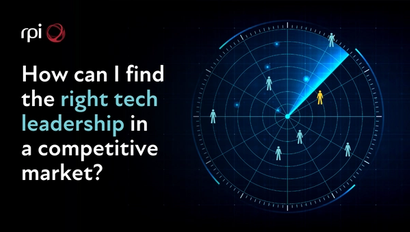As the role of data in business expands, so do the number of roles and the variety of talent and experience required.
Data projects – whether they’re Business Analytics (BA), Business Intelligence (BI), Digital Transformation, or any other initiative – tend to be high stakes matters. A lot of budget goes into them and, given the amount of time they take to complete, they can also come with a substantial ROI risk.
With that in mind, you should be sure that you have the people that you need to realise your data ambitions. Here is a guide to the roles you should fill and the skills you should acquire.
The skills you need
Commercial acumen
The entire point of any commercial data initiative, whether it’s BI, BA, or anything else, is to improve the business, and those responsible for it need to appreciate the ‘why’ as well as the ‘how’. Without that perspective, it’s easy to fall into a ‘data for data’s sake’ mentality, which loses focus and doesn’t serve the needs of the business.
Additionally, the leaders and managers who champion the initiative will need to ‘sell’ it to the wider company. It’s far more effective to inspire than to instruct, and the company will adopt new measures and methods more readily and reliably if they have genuinely bought into them.
Then, it’s likely that your leaders and managers will need to present data, the results of projects, and new initiatives to teams, departments, and even the whole business, when the attention and understanding of the audience can depend a lot on the presentational abilities of the speaker. Those with a background in business are more likely to have those abilities.
Leadership
To some extent, those who do a great job in championing data initiatives can make a rod for their own backs. By generating internal demand and excitement for the projects, they can create competition for data resources (like budget), which creates political tension.
At C-level, individuals’ responsibilities will touch the whole business, and their priorities will be company-wide. Departmental heads and managers, however, will be departmentally focused, since that is where their roles and incentives lie, and they will see their need as the greatest. Managing that and maintaining overall company unity requires skilful leadership.
Then, from a project management point of view, you need people who can steer an initiative, and understand the nature and level of involvement that it requires of them. Some departments may need more supervision, some will work better when left to their own devices, and sensitivity to those differences will be a large contributor to success.
Detail and the big picture
Another balance that your leaders need to strike is between detail orientation and appreciation for the wider context.
There’s no shortage of detail to be had in something like a BA or a BI, and those who are primarily (or only) detail-oriented could easily get lost in those and be quite happy remaining there, not considering how the details support wider objectives. On the other side of the coin, a big picture thinker could be carried away with ‘the vision’ and fail to appreciate the practical elements or specifics of execution.
Data analysis
For data to graduate from a business project to company culture, it needs to be written through the organisation like a stick of rock. There should be dyed-in-the-wool data experts at all levels of seniority, and the very top is no exception. In fact, it might be the most important level, because that is where the vision, strategy, and initiative come from.
Harking back to the leadership point, those who are ‘at the coalface’ of the data project will feel in much safer hands, and frankly speaking, will have more respect for those who are instructing them if they feel that those managers and leaders have a data pedigree.
Practically speaking, those at the top of the project will have to check and approvevarious stages of progress, as well asstrategisebased on findings and developments, all of which would be completely impossible without a suitablebusiness databackground.
Roles to consider
Here is a (by no means exhaustive) selection of roles that your organisation might want to fill to ensure the success of your projects.
Chief Data Officer
At the very head of the project, the CDO is the steward of all intelligence or analytics projects, as well as the champion of data and business intelligence in the C-Suite. Data now being aubiquitous feature of all business functions, the CDO remit is huge, and for a business of a certain size, not to have one on the board would be an enormous oversight.
Head of Analytics
The Head of Analytics plays a crucial leadership role, which is strategic and conceptual, as well as analytical and ‘practical’. The role involves stewardship of the department in terms of policies and culture, as well as highly involved ‘meat and potatoes’ analytical work. The Head of Analytics will continually look for new approaches to data, new insights, and new methods of data visualisation in support of commercial outcomes.
Project Manager
In order to steer data initiatives, project managers need to balance the short- and long-term interests of the company, and the desired outcomes and budgets, managing the schedule and ultimately the delivery of the project.
In the same way that a CDO needs to possess data and commercial skills, the project manager needs to feel comfortable both with people and with processes.
Business (Intelligence) Analyst
The question of whether to pursue Business Intelligence or Business Analytics(or both) is one we’ve discussed in a previous article, but whichever you choose, you will need analysts ‘on the ground’ to perform the intellectual heavy lifting. They might be a Business Analyst or a Business Intelligence Analyst (or similar), but whatever the title, they will need to be adept with various analytics tools, thorough, skilful at data visualisation, and able to communicate and express data in an accessible way.
Business Intelligence Architect
The BI architect designs and creates the structures for storing business data, which might be a data warehouse or a data portal. The choices that the BI architect makes will face challenges and require justification, so persuasion and communication are key skills too.
Once again, they should have a deep appreciation of commercial drivers and the business contexts of their decisions.
Data customer success manager
Much as a ‘regular’ customer success manager is responsible for improving client retention through customer experience and delivering value, a Data Customer Success Manager will do so using the insight that data offers. They will notice and present patterns in customer behaviour and business performance, and suggest where there are gaps in the offering, or where there are commercial opportunities that the company hasn’t yet noticed.
In order to fill your company with the talent that drives data initiatives forward and makes transformation a success, you need access to a wide pool of talent. RPI specialises in finding those candidates, so get in touch today at people@rpint.com.



